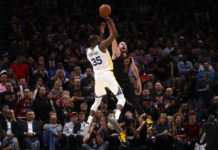There is a trait that every single successful superhero has in common. It isn’t super strength or unlimited financial resources. It isn’t an equally attractive love interest or a dark past either. Nor is it spandex, masks, gadgets, customized vehicles, or personal tragedy. Although these are all good things for an aspiring sentinel of justice to possess, they are not necessarily required. What is required is the development of a superhero persona. Every superhero has an alter ego. It’s what connects everyone from the Green Arrow to the Green Hornet, from Wonder Woman to Ant Man.
Personas are important for two reasons. Firstly, they allow the individuals to channel all of their abilities, aggression and energy into the present moment. Bruce Wayne can’t just walk into a narcotics storehouse and start wasting drug lords and their henchmen. There are laws against vigilante justice, rules set in place for a reason to defend our constitutional rights to take part in  a trial by jury and avoid cruel and unusual punishments. Bruce Wayne is subject to the laws. But Batman? Batman can do whatever the hell he wants.
a trial by jury and avoid cruel and unusual punishments. Bruce Wayne is subject to the laws. But Batman? Batman can do whatever the hell he wants.
Perhaps more importantly, however, the development of an alter ego allows a hero to become something more than a man (or woman). They become a legend, a mythic rallying cry for a public desperate for something good to hold on to. Steve Rogers is just a kid from Brooklyn, but Captain America is something else entirely. He’s a symbol, a metaphor for everything that’s good about this country. Nobody beats Captain America in a fair fight. He wins because he is a winner and that is what winners do.
There is a perception that athletes possess these alter egos too, that they possess these alternative playoff personas that are capable of rising to the challenge above and beyond what someone would presumably be capable of. When you see players come up big consistently in big time situations, you start to ascribe this aura of invincibility to their game. You assume that they’ll always find a way to pull through.
Despite their consistent inconsistency, the Dallas Mavericks remain a dark horse candidate in the west. Maybe that’s because everyone else in the conference feels like such a favorite, or maybe that’s because equine metaphors just lend favorably to their franchise. Or maybe it’s because some people believe in playoff personas.
I’ve seen the argument unfold multiple times over social media and in coffee shops. “Sure, the Mavericks seem like an unfinished product now,” they say. “But just you wait.” They talk about all sorts of things- how great Rick Carlisle is at scheming against his opponent in a playoff series, how talented this roster is on paper from top to bottom, and how this team is just waiting to put it all together. The theory is that the stout competition faced in the playoffs is going to unlock something special in the Dallas Mavericks, something special inside of this something we still haven’t seen yet this season.
But at the forefront of this, I’ve seen people continually refer to this one mythic figure, Playoff Dirk. Dirk Nowitzki is the closest thing this franchise has ever had to a real life superhero. He’s already transcended the plane of mortality to become the sort of living sports legend we mortals can only aspire to be. He’s the seventh most proficient scorer in the history of the NBA (28,043 career points), the leagues’ active leader in career offensive win shares (136.6), and one of just seven players to reach 27,000 points and 10,000 rebounds. He has 14 All-Star appearances, 12 All NBA nods, and a MVP award. Basketball reference says that Dirk has a Hall of Fame Probability of 100%, but that still seems a little low. Basically, Dirk is great. We all already knew that. But is there something different about him in the postseason? Is Playoff Dirk real or is he just another tall tale?
Over the course of his prestigious 17-year career, the wunderkind from Wurzburg has averaged 22.2 points, 8 rebounds and 2.6 assists per game during the regular season. That’s pretty solid, but Playoff Dirk has even better numbers. In the postseason, Dirk averages 25.6 points, 10.1 rebounds, and 2.5 assists. That is a historic level of production. Only three other guys have career playoff averages of at least 25 points and 10 rebounds- Bob Petit, Hakeem Olajuwan, and Elgin Baylor.
If you look closer, there’s a pretty simple explanation for this bump in production and it’s really simple. Dirk plays more minutes in the playoffs (5.6 more per game on average). That shouldn’t be a surprise. You have to limit your player’s minutes during the regular season to keep them healthy during the grueling 82 game schedule. In the playoffs, it’s win or go home so there’s no reason to hold back. You tighten up your rotations and let your best players play as much as they are physically able to.
Dirk’s overall numbers are better in the playoffs, but his per 36 minutes production is essentially the same as it is throughout the rest of his career if you compare apples to apples. Per 36 in the postseason, his scoring dips by -0.2, his rebounding increases by +0.7, and his assists drop by -0.4. Interpret that as you will, but keep in mind that anything you do in the postseason is against stronger competition and under higher pressure than anything you face during the regular season.
Advanced statistics show a similar trend as Dirk’s PER (23.3 regular season, 24.2 postseason), true shooting percentage (.581, .579), and win shares per 100 possessions (.206, .196) essentially remains the same across the divide that separates the regular season schedule and the playoffs.
The Mavericks have been saving Nowitzki’s minutes all season long. This is the first season since Dirk’s rookie year that he’s averaged less than 30 minutes a game. We’ll definitely see more of Dirk in the playoffs, but that doesn’t mean that we’ll see a different version of him. If you’re looking for evidence of the existence of Playoff Dirk, you’re not going to find it in the numbers.
Numbers can be overrated, though, and the only statistic that means anything at all in the playoffs is the final score. A player’s value is determined by his ability to influence that score and make sure that his team comes out on top at the end. Dirk has proven he can do that when the stakes are at their highest. If Dallas is going anywhere this year, he’ll have to do it again.









